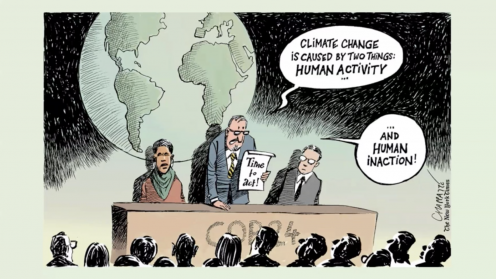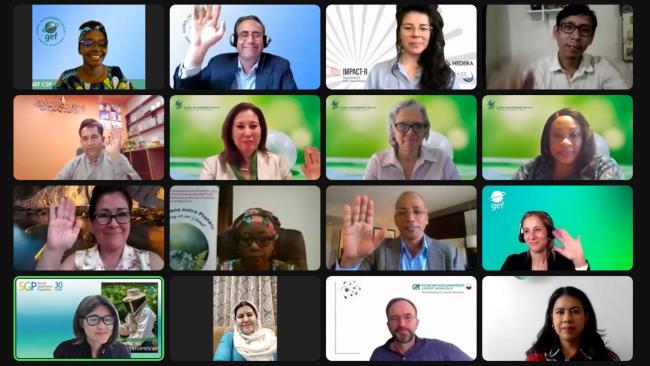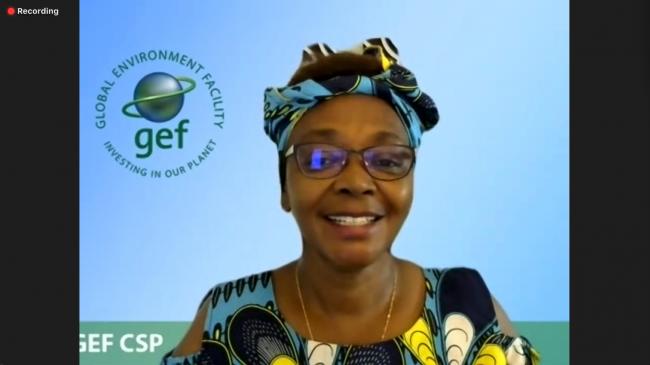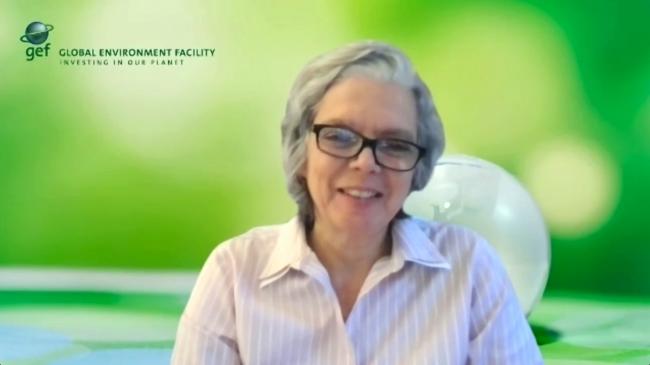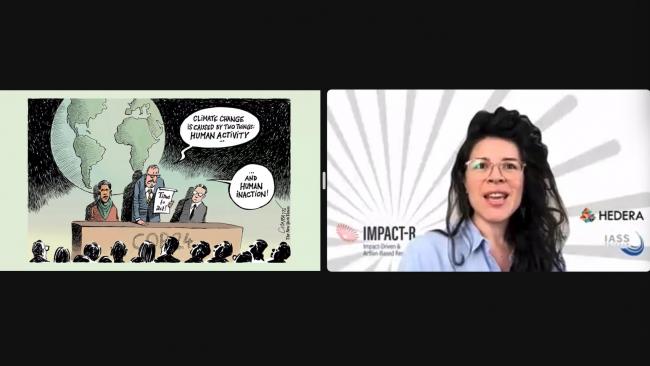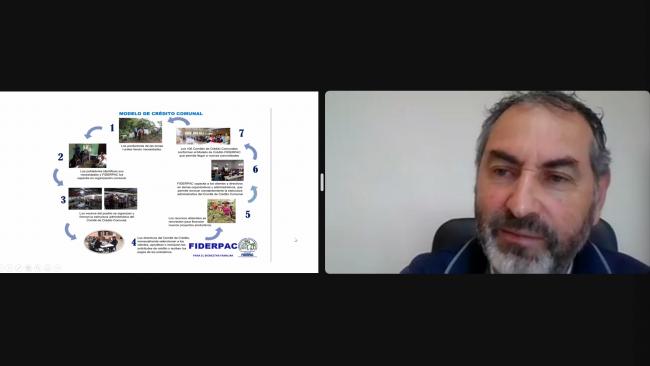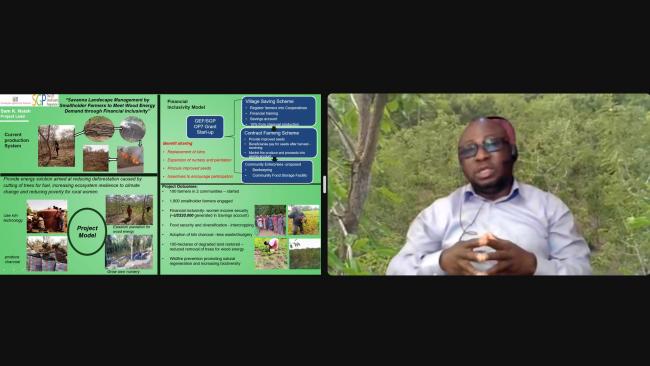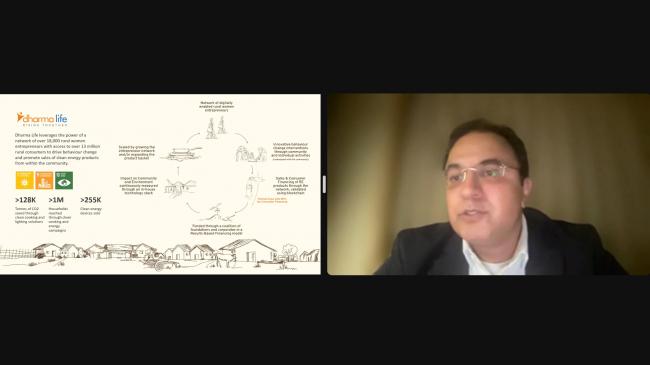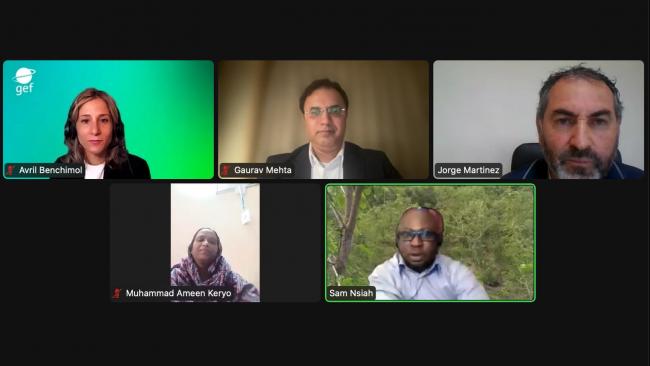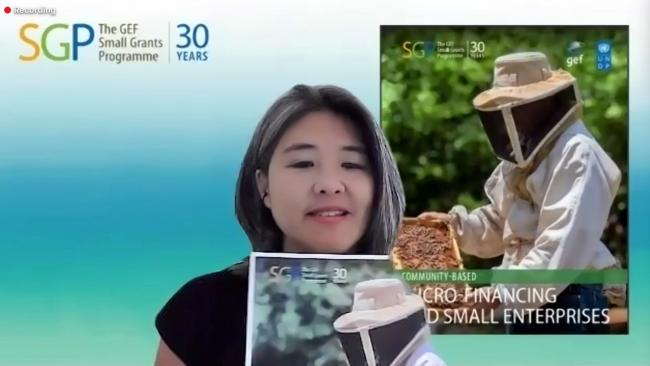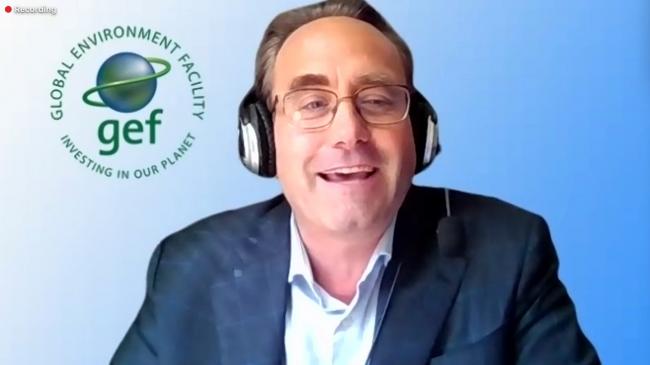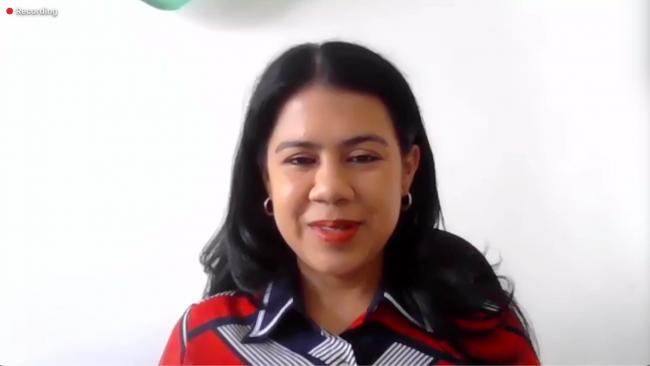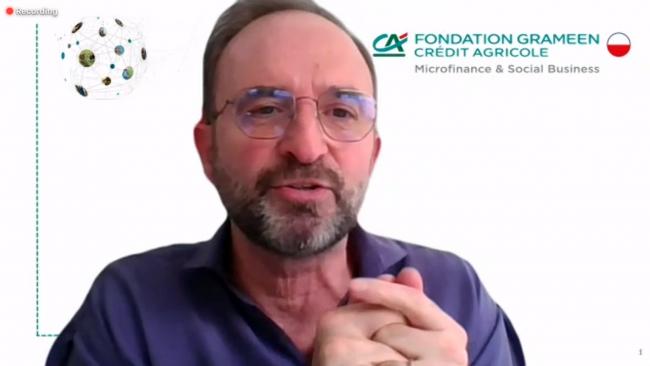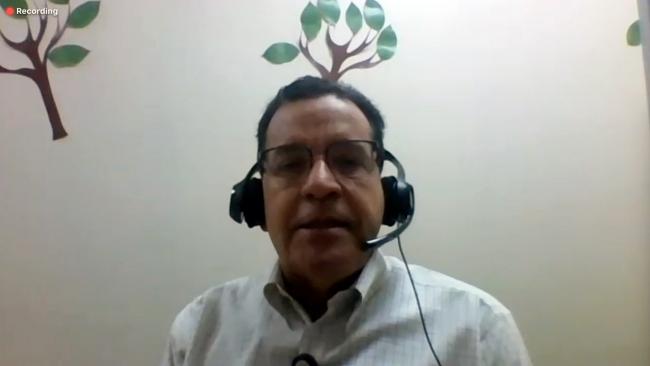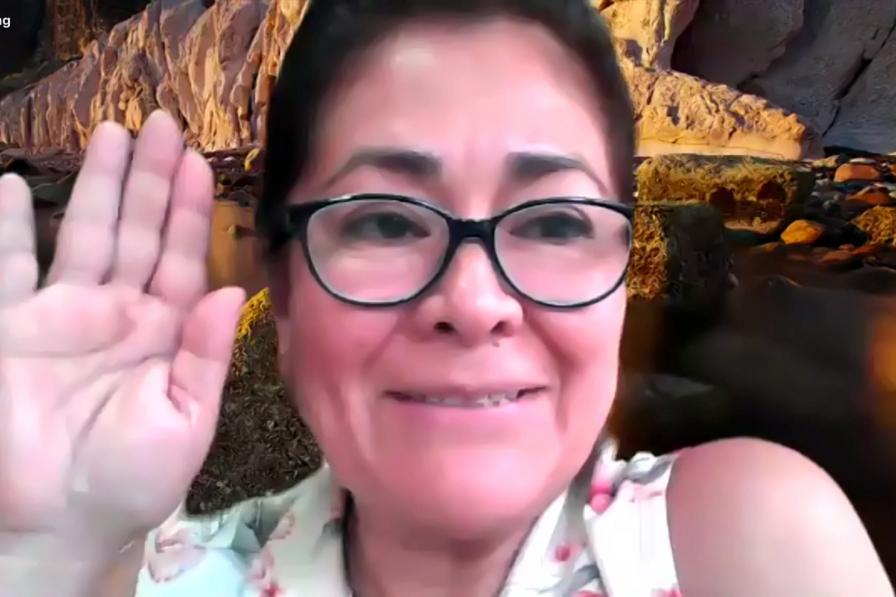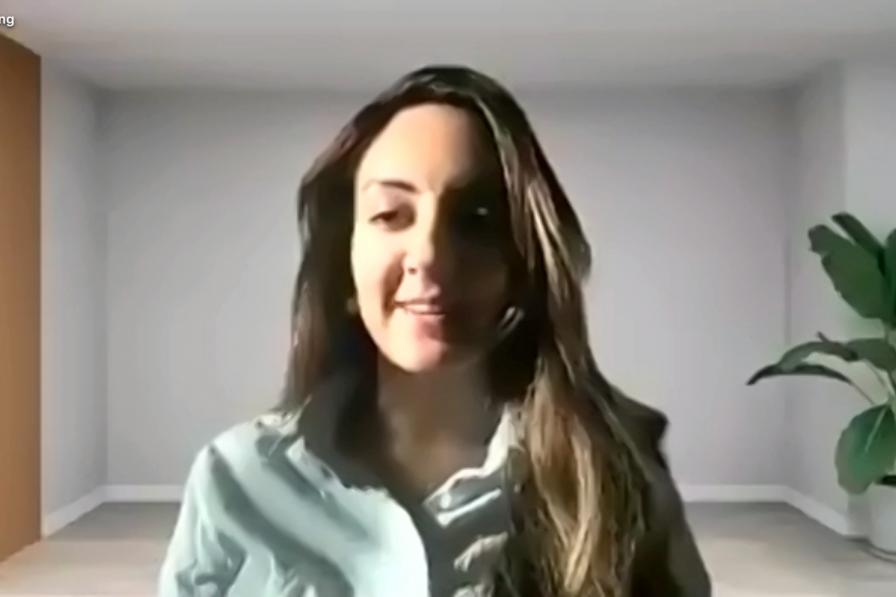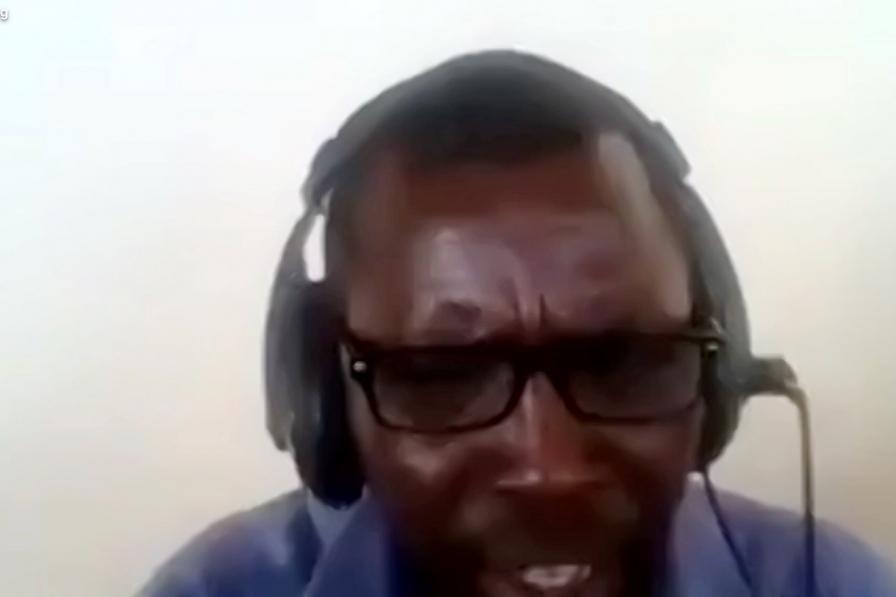GEF CSO Consultations on “Inclusive Microfinance: Expanding Access to Microfinancing in Support of Local Actors and Actions for the environment and climate action in GEF-8 and Beyond”
Opening the meeting, Master of Ceremonies Susan Waithaka, Global Environment Facility (GEF) Secretariat, said the eighth replenishment of the GEF Trust Fund (GEF-8) includes a 30% increase in contributions and will boost efforts to address environmental degradation.
Akhteruzzaman Sano, Save the Earth Cambodia and Chair of the GEF Civil Society Organization (CSO) Network, said microfinance should be climate-friendly, environmentally friendly, and friendly to borrowers, rather than making it difficult to repay. He argued that financing should be distributed to a community-level actor, such as a non-governmental organization (NGO) or small or medium enterprise (SME), which should also receive technical support on investing the money well. A case study from Cambodia showed the value of using microfinance to create a revolving fund and enable community members to borrow again and again.
Françoise Clottes, Director, Strategy and Operations, GEF Secretariat, on behalf of GEF CEO and Chairperson Carlos Manuel Rodríguez, noted that the GEF replenishment process is increasingly converging on supporting and engaging with CSOs, and underlined that the GEF Small Grant Programme (SGP) is an entry point for many CSOs. She said bringing impactful ideas, with the necessary funding and access to markets, is critical to progress.
Natalia Realpe Carrillo, HEDERA Sustainable Solutions, Institute for Advanced Sustainability Studies (IASS), Co-head of the e-MFP Green Inclusive and Climate Smart Finance Action Group, reported the countries most vulnerable to climate change are also the ones with the lowest GDP per capita. Boosting green, inclusive finance—the latest evolution in microfinance—can ensure such countries become more resilient. She called for “softer financing terms” to ensure microfinance institutions can develop financial products fit to invest in the environment.
During discussion, participants addressed strategies for CSOs to access microfinance, how the GEF will cushion known barriers to microfinance deployment, and the major challenges faced by green microfinance institutions and mechanisms that can be used to address these barriers.
Panel Discussion with Local and Regional NGOs and CSOs
Avril Benchimol Dominguez, GEF Secretariat, moderated the session.
Jorge Martinez, Community Credit Officer, Integrated Rural Development Foundation of the Central Pacific (FIDERPAC), spoke on the FIDERPAC model. He said the Foundation works with rural communities in Costa Rica to establish Community Credit Committees (CCCs) where access to sustainable credit is provided to expand and strengthen the environmentally sustainable productive capacities of small producers and farmers.
Samuel Nsiah, Sustainable Agroforestry Initiative, said the goal of the initiative is to allow communities to become economically resilient through sustainable community management of savanna woodlands. He said a number of communities diversified into contract farming schemes and bee keeping and community food storage facilities.
Gaurav Mehta, Founder and CEO Dharma Life India, discussed the social enterprise model where women entrepreneurs are trained to provide village infrastructure in partnership with microfinance institutions to improve access to energy, access to finance, and livelihoods.
During discussion, participants addressed Indigenous Peoples’ ability to access GEF SGP funds as well as microfinancing institutions servicing local communities.
GEF Small Grants Programme – Brochure on Microfinance
Yoko Watanabe, Global Manager, GEF SGP, discussed the GEF’s brochure on microfinance, which provides a brief introduction to SGP’s current work and experience on microfinance. She said SGP looks forward to scaling up its initiatives, and underscored the private sector as critical to achieving the SDGs. Watanabe stated that working with the private sector is critical to making progress on environmental issues.
Panel Discussion with Microfinance Institutions and Networks
Moderator Jason Spensley, GEF Secretariat, invited perspectives on how to “bring points of light to scale” while expanding the local impacts of green, inclusive microfinance and cushioning barriers to access.
Aracely Castillo Gutierrez, Executive Director, Central American and Caribbean Microfinance Network (REDCAMIF), said 25% of REDCAMIF-affiliated institutions have green projects and financial services in their portfolios, amounting to USD 175 million in microfinance. She underscored the need for:
- Adequate funding because microfinance is very expensive;
- Improved financial literacy and inclusion;
- Technical assistance to beneficiaries and microfinance institutions on the value of nature-based solutions;
- A broader, synergistic ecosystem of microfinance institutions; and
- Systematization of experiences so that the whole ecosystem understands that green microfinancing is possible.
Philippe Guichandut, Head of Inclusive Finance Development, Grameen Crédit Agricole Foundation, said the Foundation is investing in more than 60 microfinance institutions in 35 countries in Africa, the Middle East, Central Asia, and Europe. He identified the lack of technical support and funding as the main obstacles to providing and accessing microfinance.
Jose Miguel Mendez, Agriculture Value Chain Coordinator, ADOPEM Credit and Savings Bank, stressed the importance of: reaching vulnerable populations; flexible credit payments for farmers; education on finance and production techniques for rural clients; and financial products that “respond to ecosystem adaptation.”
In ensuing discussion, participants considered microfinance institutions’ role in strengthening the integration of biodiversity criteria into the tourism sector, and microfinance addressing climate risk in Sub-Saharan Africa.
Closing Remarks
Summarizing key takeaways from the consultation, Hedera highlighted the need for:
- Financial inclusion and literacy to strengthen resilience;
- Awareness raising among beneficiaries on climate-resilient and nature-based solutions;
- Technical assistance to enable microfinance providers to better focus their capital;
- Metrics and monitoring systems to measure the environmental impacts of microfinance; and
- Improved access to financing for vulnerable beneficiaries.
In closing, Paola Ridolfi, GEF Secretariat, said the GEF will build on the insights offered during the consultation that she described as “pure gold without mercury.”
